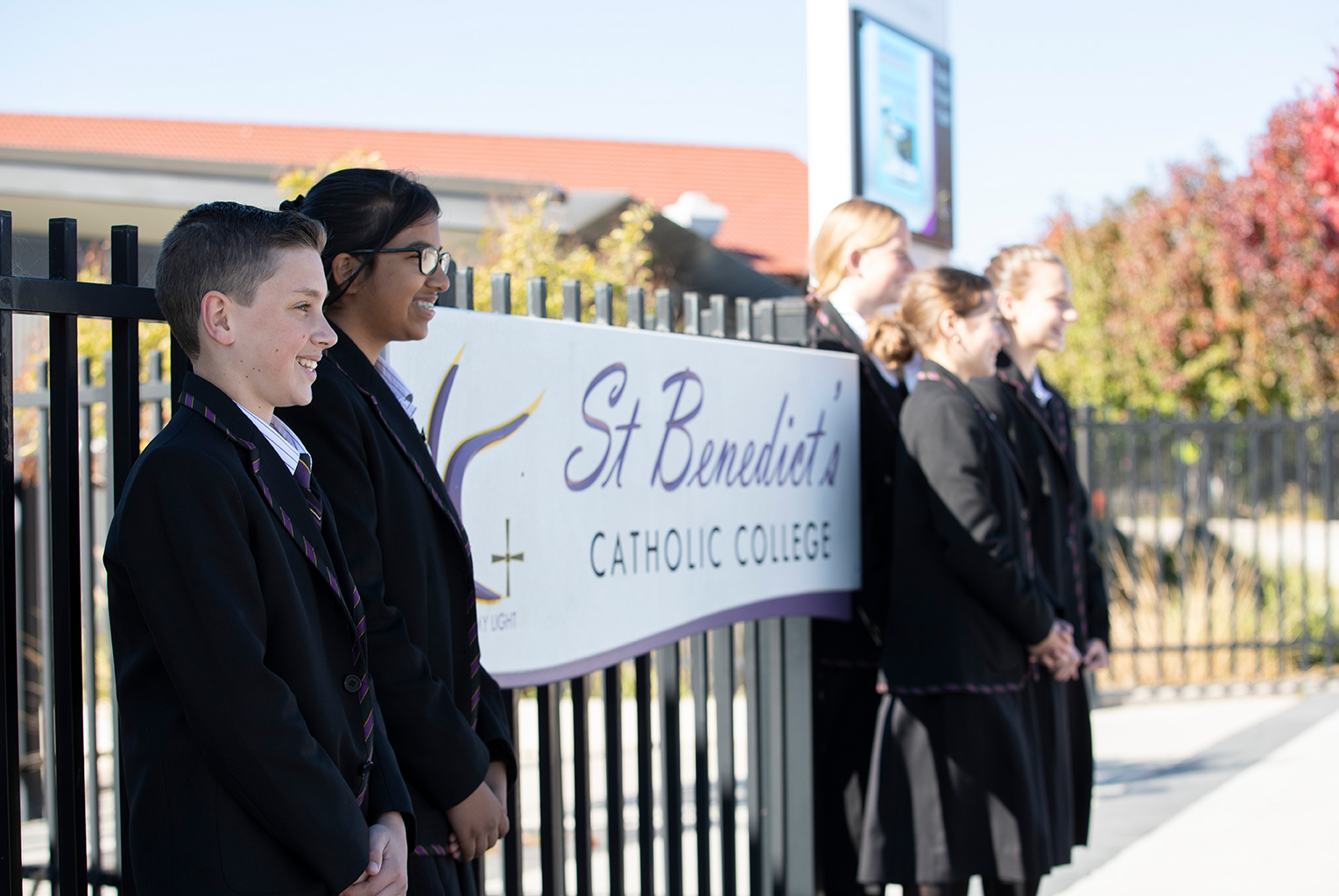PDHPE – Stage 4 & 5
Personal Development, Health and Physical Education (PDHPE) is a compulsory course from K-10 that contributes significantly to the cognitive, social, emotional, physical and spiritual development of students. It provides opportunities for students to learn about the importance of maintaining a healthy, productive and active life. PDHPE involves students learning through movement experiences that are both challenging and enjoyable, and improving their capacity to move with skill and confidence in a variety of contexts.
PDHPE allows students to develop the necessary skills to respond to factors such as community values, new technologies, media influence, environmental concerns and changing family structures and employment patterns. This subject is concerned with the development of the whole person.
Various sporting opportunities explored include:
- Athletics
- Badminton
- Baseball
- Basketball
- Dance
- European Handball
- Gymnastics
- Lacrosse
- Netball
- Orienteering
- Soccer
- Softball
- Ultimate Frisbee
- Volleyball
PDHPE Electives – Stage 5
PASS – Physical Activity and Sport Studies
This elective allows a broad view into the many possible contexts for physical activity. It incorporates a wide range of lifelong physical activities, in particular many recreational pursuits. This syllabus promotes the concept of learning through movement and allows students the opportunity to develop their movement skills. PASS allows students to explore the broad nature of career pathways in this area and introduces them to many of these. Learning opportunities are extended through excursions such as the Surf School, hiking activities and Orienteering tasks. Students will also have the opportunity to learn through the use of the College Gym.
Child Studies
Child studies is an elective course that aims to develop students’ knowledge, understanding and skills to positively influence the wellbeing and development of children in the critical early years in a range of settings and contexts. Students will be able to engage in a variety of learning experiences that help explore these key concepts of child studies.
PDHPE Electives – Stage 6
The 7-10 PDHPE syllabus provides a basis that can be built on in Stage 6. Courses offered in PDHPE for Stage 6 include Community and Family Studies (CAFS), Personal Development, Health and Physical Education (PDHPE), Sport, Lifestyle and Recreation (SLR) and Exploring Early Childhood (EEC).
Community and Family Studies (CAFS)
The Community and Family studies course aims to explore components of family studies, sociology, developmental Psychology and students’ general life experiences. This course focuses on skills in resource management that enable people to function effectively in their everyday lives, in families and communities.
Personal Development, Health and Physical Education (PDHPE)
PDHPE is an area of study that provides for the intellectual, social, emotional, physical and spiritual development of students. It involves students learning about and practising ways of maintaining active, healthy lifestyles and improving their health status. It is also concerned with social and scientific understandings about movement, which lead to enhanced movement potential and appreciation of movement in their lives. Scientific aspects to be studied include anatomy, physiology, biomechanics and skill acquisition. Students will also have the opportunity to learn through the use of the College Gym.
Sport, Lifestyle and Recreation (SLR)
Sport, Lifestyle and Recreation enables Stage 6 students to build upon their learning in Years K–10 Personal Development, Health and Physical Education. Specifically, it focuses on those aspects of the learning area that relate most closely to participation in sport and physical activity. Students will also have the opportunity to learn through the use of the College Gym.
Exploring Early Childhood (EEC)
The Exploring Early Childhood course aims to give students an overview of development and related issues within an early childhood context. It provides the opportunity to consider a range of issues in relation to the individual student, their family and the community. As well as reflecting on the personal relevance of childhood issues, students are encouraged to consider the implications for future interactions with children, be these as a parent, friend, carer or educator.


